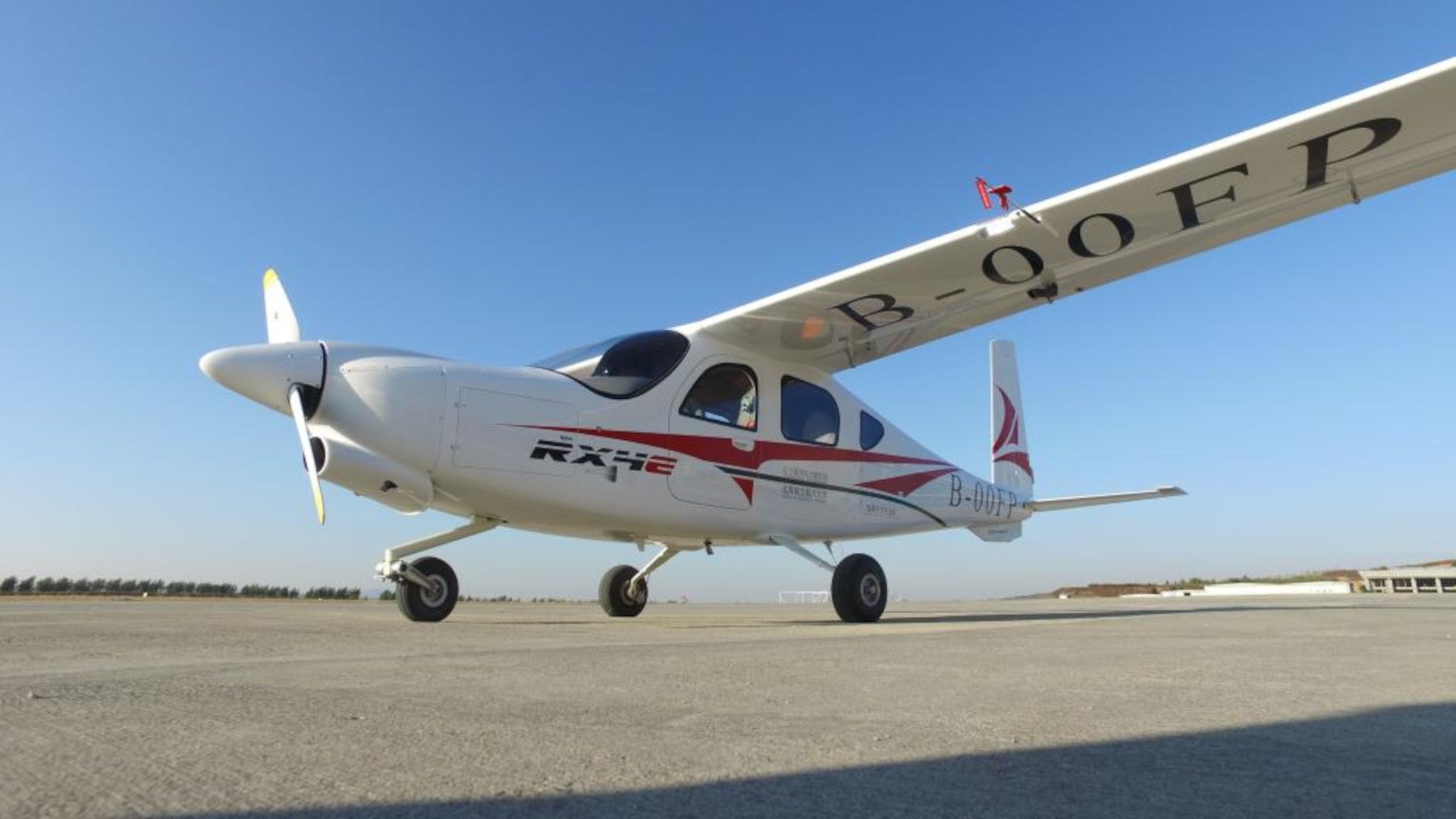ABU DHABI, United Arab Emirates—Joby Aviation, Archer Aviation, and other manufacturers of electric vertical takeoff and landing (eVTOL) air taxis have made clear their intentions to fly in the United Arab Emirates. But the country plans to introduce more than just eVTOL models.
Hong Kong-based Volar Air Mobility, a company developing a fossil fuel-free aerial ride hailing platform that will use electric short takeoff and landing (eSTOL) aircraft developed by a partner in China, is one of the latest to signal interest in the UAE.
The firm signed a memorandum of understanding (MOU) with Abu Dhabi-based Inovartic Investment, laying the groundwork for a partnership that would commercialize a family of zero-emission aircraft in the country.
Agreed upon in advance of the inaugural DriftX—an Abu Dhabi-based conference that last week showcased cutting-edge technology in air, land, and sea transportation—the collaboration will cover aircraft distribution, post-sale services such as maintenance, repair, and overhaul (MRO), crew training, and, potentially, manufacturing and assembly capabilities in the UAE.
“This partnership marks a significant step towards integrating sustainable technologies in aviation, which is crucial for environmental conservation and technological advancement,” said Henry Hooi, CEO of Volar. “This aligns with the goals as outlined in the ‘UAE’s Net Zero by 2050’ agenda.”
Volar seeks to commercialize aircraft that are safe to fly, affordable, and offer on-demand flexibility and zero carbon emissions: a set of criteria it dubs “SAFE.” Its goal is to enhance regional accessibility to private aviation in suburban areas, where environmental concerns and existing aircraft configurations can make traditional airline operations impractical.
Volar’s proprietary, aircraft-agnostic platform is designed to facilitate air taxi ride hailing, complete with booking, check-in, and flight status updates. The first aircraft to join its fleet will be the RX4E: a four-seat eSTOL design being developed by partners at Liaoning General Aviation Academy, which works with the Chinese state-owned aerospace and defense conglomerate Aviation Industry Corporation of China.
The RX4E is built for one pilot plus four passengers, with a maximum takeoff weight just under 2,650 pounds. It will have a range of about 186 sm (162 nm) and cruise speed of 124 mph (108 knots). Batteries can be swapped out in about 10 minutes, minimizing downtime.
Volar deliberately picked an eSTOL configuration over an eVTOL or a drone for several reasons, Hooi told FLYING at DriftX. For one, Hooi said, it offers greater range and endurance. In addition, the company claims on its website that the RX4E will be more affordable and offer greater time savings compared to “conventional” private aviation options. One of the biggest benefits, though, is ease of certification.
“We believe that, from a regulatory perspective, eSTOL will be quicker to be adopted,” Hooi told FLYING.
The RX4E first flew in 2019 and is in the type certification process with China’s Civil Aviation Authority (CAAC). Volar claims the design will be the first commercial four-seat electric aircraft with Part 23 certification, which it expects to obtain by year’s end.
Unlike the tiltrotor designs common in the eVTOL space, Volar’s eSTOL uses a fixed configuration. The company says this will allow it to leverage regulatory frameworks similar to those for existing fixed-wing models.
The design also lacks the unique infrastructure needs of eVTOL aircraft, such as vertiports. In fact, Volar could reduce infrastructure requirements for operators, owing to the eSTOL’s ability to operate from shorter runways. According to Hooi, the company is developing models that can land on land, snow, or water.
Use cases for the eSTOL overlap somewhat with those proposed for eVTOL designs: private aviation, interisland transport, eco-tourism, medical logistics and evacuation, and services in rural areas with limited road infrastructure, to name a few.
But unlike many eVTOL air taxi companies, Volar’s focus is on the developing world, where it believes zero-emission aircraft can derive regional sustainability, accessibility, and economic benefits from aviation.
The firm envisions operations primarily in regions considered part of the “Global South.” It will first launch in the Association of Southeast Asian Nations (ASEAN) countries, a bloc of 10 nations that the company finds attractive due to its rapid economic growth and proximity to mainland China. After that, it will expand into African and Middle Eastern countries, such as the UAE.
“We fundamentally believe that the UAE is a fantastic hub for the potential development of green aviation in the region,” said Hooi.
Hooi said, for example, that he was recently approached with a proposition from a regional government in Southeast Asia. One of the country’s tourism sites lies atop an active volcano, requiring a three-day hike to reach it. The site is visited by as many as 100,000 tourists annually, who often leave a trail of rubbish in their wake.
Volar proposed flying tourists to the top of the volcano using an electric seaplane. Hooi said this could reduce the amount of trash on the trails and attract additional tourists by opening access to people incapable of making the three-day trek. He also suggested that by reducing travel time to the summit, visitors might spend more money at local restaurants and bars, bringing more economic activity to countries that rely heavily on tourism.
“You and I are not going to make an iota of difference if we cannot engage the rest of our communities to participate in collectively working towards a green environment,” Hooi said.
Like this story? We think you’ll also like the Future of FLYING newsletter sent every Thursday afternoon. Sign up now.
